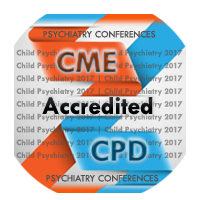Wijntje van der Ende,
Stenden University, Netherlands
Title: Affect Regulating Arts Therapy as child approach for developmental psychopathology
Biography
Biography: Wijntje van der Ende,
Abstract
Affect dysregulation is known as an important trigger for psychopathology. Affect Regulating Arts Therapy diminishes emotional and behavioural problems along the pathway of improving the child’s affect regulation. The aim of this transdiagnostic treatment model is a healthy affect regulation for children with emotional and behavioural problems caused by developmental disorders (ADHD, ASS, LVB, attachment). The model was presented on the First International Mentalizing in Arts Therapies Conference, organized by ICAPT London and PRATT Institute Brooklyn, NY 2016. It is in alignment with the upcoming mentalizing approach that is already evidence based for BPS. It is now developed by The Dutch Knowledge Network, a cooperative effort of Dutch arts therapists, as ‘Affect Regulating Arts Therapy’. Results are positive in ROM Measuring (CBCL). The affect regulating therapy process can be monitored by the IFP test measuring affect interpretation as part of emotion regulation. Arousal regulation, attention regulation and affect regulation are combined with nonverbal coregulation as marked mirroring, matching and dialoguing in art and music improvisation. This gives the child physical and repetitive affective experiences, while training subsequent interactive communication patterns of mutual attention, mutual engagement and reciprocity. In relatively short time the improvement of the child’s affect regulation creates a fundamental base for mentalizing skills, like awareness of feeling intentions of the self, learning to take other’s perspective. Transfer to daily life is managed by means of parent participation and by integrating home and school situations in the process.

